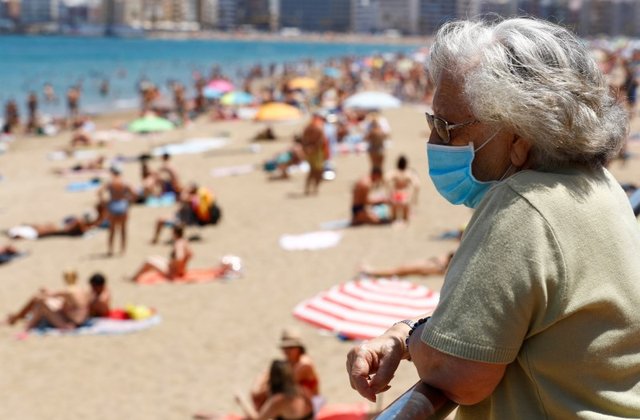Through 2020, Coronavirus has rampaged across continents, causing countless lockdowns and imposing travel restrictions on populations across the world. Now, as we near the end of the year, a conclusive end to the virus feels no closer and, despite scientists’ best efforts, the mass distribution of a vaccine still seems elusively distant.

As the world’s nations struggle with previously unimaginable levels of debt trying to prop up faltering economies – and the death toll sadly continues to rise – leaders are increasingly starting to look for temporary fixes to stem the tide and restore some measure of normality.
Most scientists concur that lockdowns offer little more than a temporary fix to a long-term problem – and most would agree we can’t simply continue to impose restrictions indefinitely. While it’s true there is growing optimism a vaccine breakthrough might be imminent. Speculation is not enough to continue lockdowns in the hope of one appearing. Rather, leaders are now looking to test and trace systems to, hopefully, allow safe movement.
Lessons learned and the predicted second wave
Scientists had predicted for some time that a second Corona wave was likely as we neared winter. Indeed, cases of flu always begin to rise as the seasons turn so upturns in Corona were equally expected.
However, while it may feel like we’ve jumped back eight months, important lessons have been learned through this year that better equip our governments to predict, deal with and ultimately mitigate the effects of infection spikes and so-called cluster cases.
Also, scientists’ understanding of COVID and how it behaves has grown exponentially over the last few months. We now have applicable treatments that can greatly reduce the effects of the virus for patients already admitted to Intensive Care Units (ICU). Health services are better prepared, populations are better educated and distancing rules, while not ideal, are mostly being followed. Additionally, mask-wearing has been widely-adopted, and personal hand hygiene rules are generally being adhered to. In reality, we have come a long way in the last year.
The significance of reliable COVID testing
Central to reducing lockdowns and restrictions on travel has been the development of reliable, rapid testing kits. Companies like TeamTech have been working tirelessly to develop rapid antigen Point of Care (POC) COVID-19 tests which can diagnose the virus in as little as 15 minutes.
Most governments see fast, trustworthy testing as central to the battle against imposing further lockdowns on society and allowing greater movement of people. In conjunction with tracing apps, they may well help unlock our societies again.
The effect of COVID on travel
No industry has escaped the economic ravages of Coronavirus; however, it could be argued the sector hardest hit has been travel and tourism. Alongside the entertainment sector, travel and tourism-related companies have endured a massive slump in demand, with many operators already forced to close.
Until a reliable and effective vaccine is found, most analysts predict very tough times ahead for the travel and tourism sector, and it seems likely the damage done now could affect the industry for many years to come.
Restrictions have all but ended global travel, and the once-thriving airline industry (at one point expecting a 4.1% growth through 2020) is now predicting a global loss of some $84 billion through this year, prompting many to wonder just how the industry will look in the future.